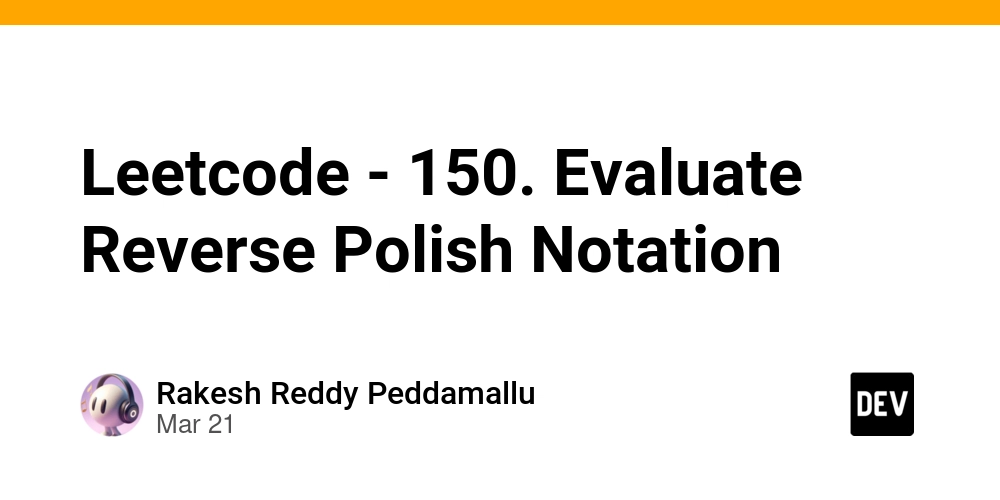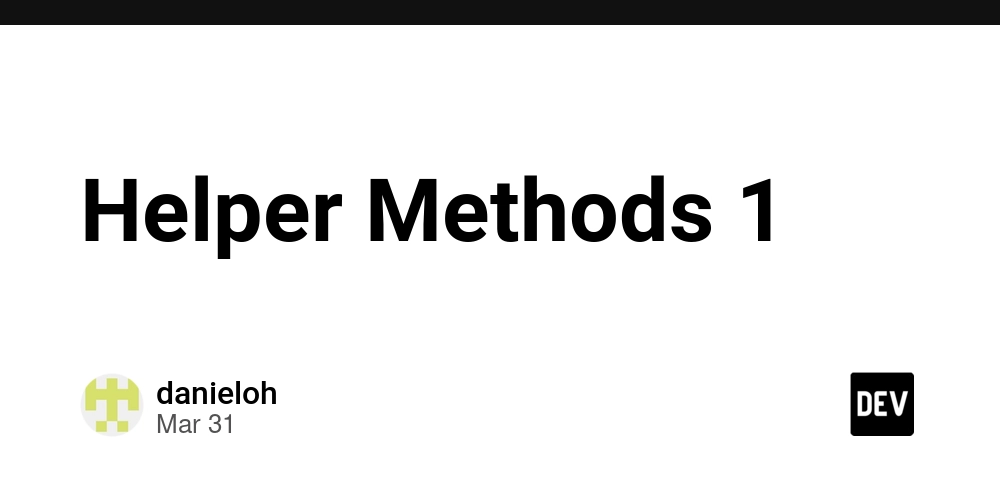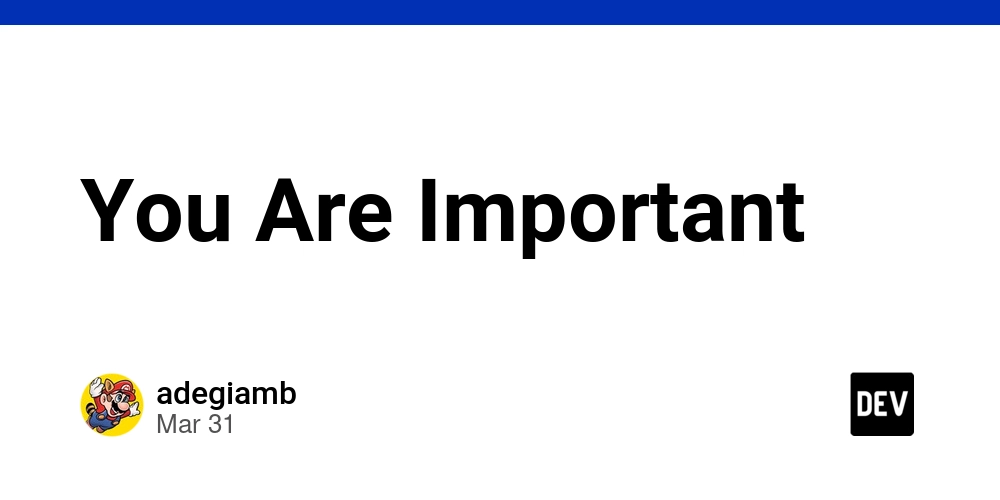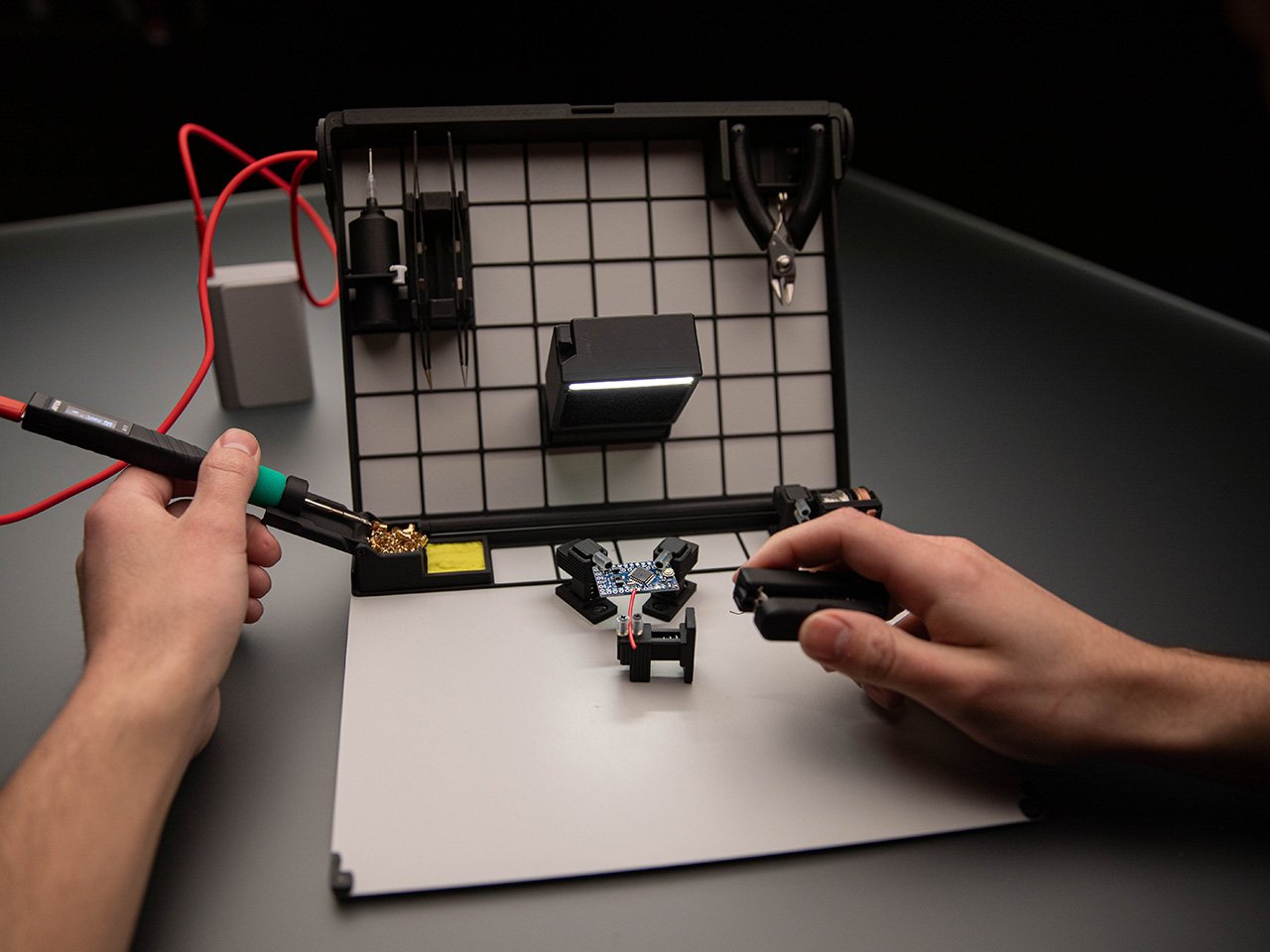Leetcode - 150. Evaluate Reverse Polish Notation
Evaluating Reverse Polish Notation (RPN) – Approach & Learnings Approach Use a stack to process the tokens in a single pass. If the token is a number, push it onto the stack. If the token is an operator (+, -, *, /): Pop two elements from the stack (a = pop(), b = pop()). Apply the operator in the correct order (b op a). Push the result back onto the stack. The final value left in the stack is the result. Time Complexity O(N), where N is the number of tokens. Each token is processed exactly once. Stack operations (push/pop) take O(1) time each. Key Learnings Type Handling is Critical Ensure all numbers are Number, not strings (Number(token)). Explicitly return Number(myStack.pop()) to avoid type errors. Correct Order of Operations Since the stack is LIFO, pop order matters: let a = stack.pop(); let b = stack.pop(); - For subtraction and division, **order is crucial**: `b - a`, `b / a`. Handling Integer Division JS division (/) results in float, but integer division is expected. Use Math.trunc(b / a) to truncate towards zero. Cleaner Operator Handling Use a function dictionary for better readability: let operations = { "+": (a, b) => a + b, "-": (a, b) => b - a, "*": (a, b) => a * b, "/": (a, b) => Math.trunc(b / a) }; Code Implementation var evalRPN = function(tokens) { let stack = []; let operations = { "+": (a, b) => b + a, "-": (a, b) => b - a, "*": (a, b) => b * a, "/": (a, b) => Math.trunc(b / a) // Truncate towards zero }; for (let token of tokens) { if (operations[token]) { let a = stack.pop(); let b = stack.pop(); stack.push(operations[token](Number(a), Number(b))); } else { stack.push(Number(token)); } } return Number(stack.pop()); // Ensure correct return type };

Evaluating Reverse Polish Notation (RPN) – Approach & Learnings
Approach
- Use a stack to process the tokens in a single pass.
- If the token is a number, push it onto the stack.
- If the token is an operator (
+,-,*,/):-
Pop two elements from the stack (
a = pop(),b = pop()). -
Apply the operator in the correct order (
b op a). - Push the result back onto the stack.
-
Pop two elements from the stack (
- The final value left in the stack is the result.
Time Complexity
-
O(N), where N is the number of tokens.
- Each token is processed exactly once.
- Stack operations (push/pop) take O(1) time each.
Key Learnings
-
Type Handling is Critical
- Ensure all numbers are
Number, not strings (Number(token)). - Explicitly return
Number(myStack.pop())to avoid type errors.
- Ensure all numbers are
-
Correct Order of Operations
- Since the stack is LIFO, pop order matters:
let a = stack.pop(); let b = stack.pop();
- For subtraction and division, **order is crucial**: `b - a`, `b / a`.
-
Handling Integer Division
- JS division (
/) results in float, but integer division is expected. - Use
Math.trunc(b / a)to truncate towards zero.
- JS division (
-
Cleaner Operator Handling
- Use a function dictionary for better readability:
let operations = { "+": (a, b) => a + b, "-": (a, b) => b - a, "*": (a, b) => a * b, "/": (a, b) => Math.trunc(b / a) };
Code Implementation
var evalRPN = function(tokens) {
let stack = [];
let operations = {
"+": (a, b) => b + a,
"-": (a, b) => b - a,
"*": (a, b) => b * a,
"/": (a, b) => Math.trunc(b / a) // Truncate towards zero
};
for (let token of tokens) {
if (operations[token]) {
let a = stack.pop();
let b = stack.pop();
stack.push(operations[token](Number(a), Number(b)));
} else {
stack.push(Number(token));
}
}
return Number(stack.pop()); // Ensure correct return type
};














































































